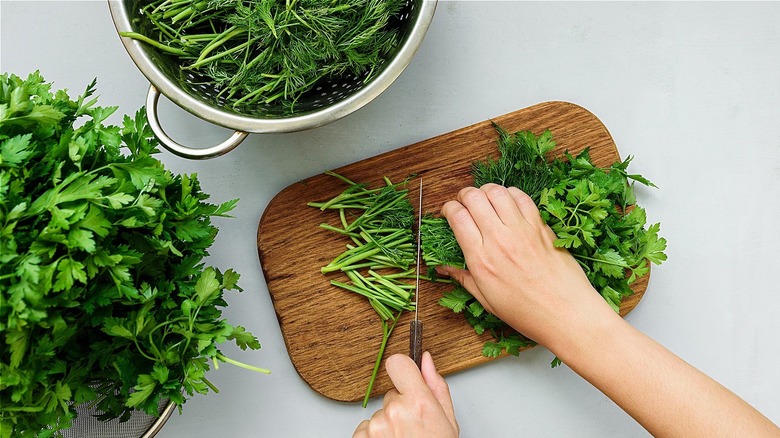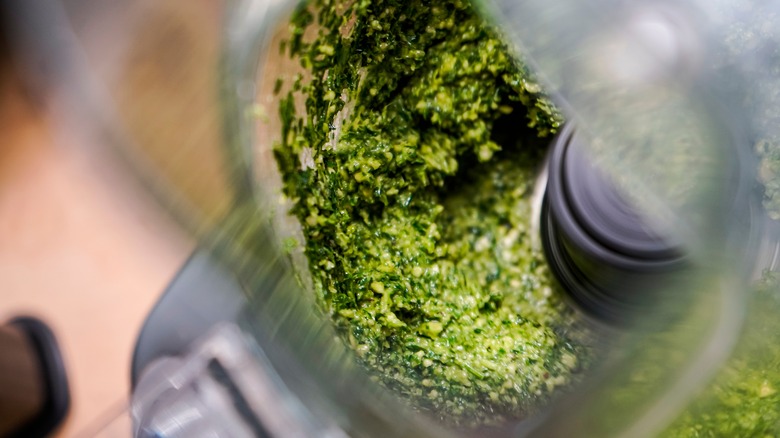The Simple Step To Keep Chopped Herbs Bright Green
A smart cook plans ahead. If they know they are serving baked salmon or chicken for dinner, they have it seasoned the night before or during the morning so the protein absorbs all the flavor and they are not rushing too much before the event. If they are doing a side salad, they probably diced the tomatoes during lunch. Having vegetables or herbs washed, chopped, and stored, saves time while serving, but it does not always solve all of our problems.
Veggies or herbs can get soggy or darkened if not stored properly. It probably isn't harmful to eat, but the color doesn't look that appetizing. And, if we are blending herbs to add aroma and color to a dish, it won't be great if the herbs are dull. Washing and preserving are important not only for flavor but to avoid contamination and health risks (via Cooking Light).
We need to be extra careful from the moment we buy it: Ina Garten suggests wrapping them in a paper towel and Ziplock bag after washing and drying. Or, as a New York-based chef told People Magazine: Soak your fresh herbs in cold water and ice.
Iced water can save your chopped herbs from dullness
On the topic of keeping herbs bright, it's important to establish why we should soak fresh herbs in a bowl of ice water, as suggested by People Magazine. When blending sauces, we often use hot or cooked ingredients, and the resulting hot blade can banish the color of our herbs. Herbs need to be at a colder temperature to retain their brightness.
Chatelaine also suggests blanching, which means transferring herbs from a pot of boiling water to very cold water. This helps preserve the vibrant color and flavor, and makes the herbs more resistant to any temperature. But again, just doing water and ice before blending is just fine!
Now, which herbs should we be soaking? As Gobble explains, from the soft and hard herbs, only the soft and tender herbs work with water. Tender herbs, like basil, cilantro, parsley, or mint, are cleaned and stored with water to preserve moisture, and usually in the fridge — except for basil, which is kept at room temperature. Change the water regularly, and treat them with delicacy so they don't break. Your sauces, pestos, chilis, or future dips will look bright as ever.

